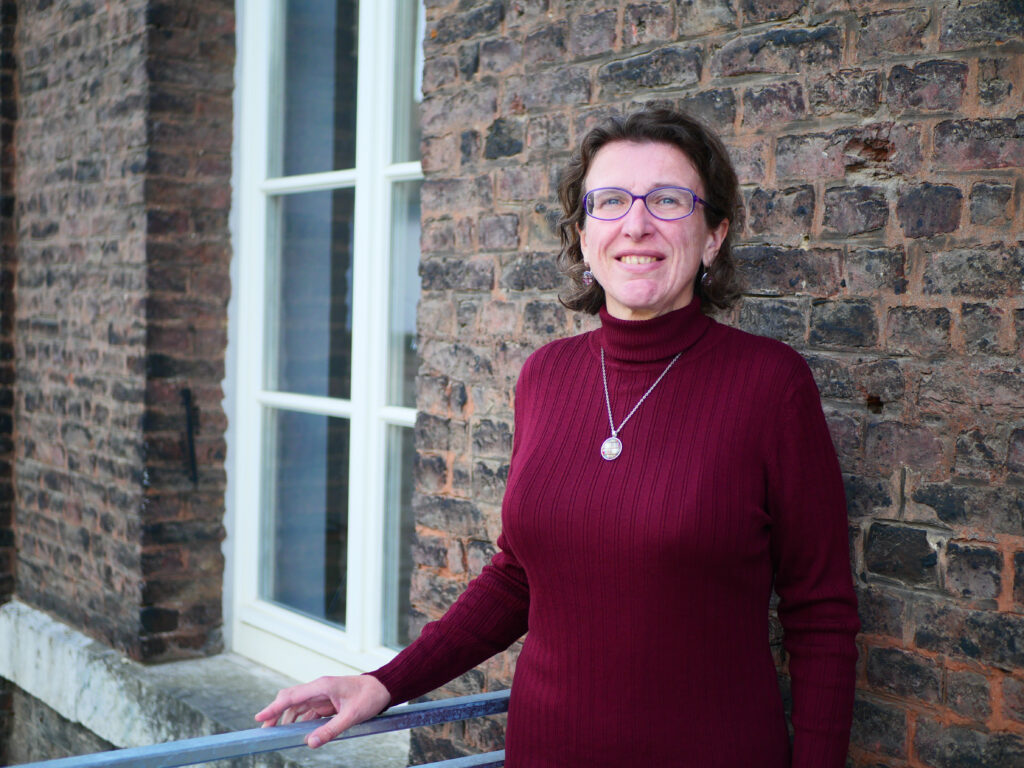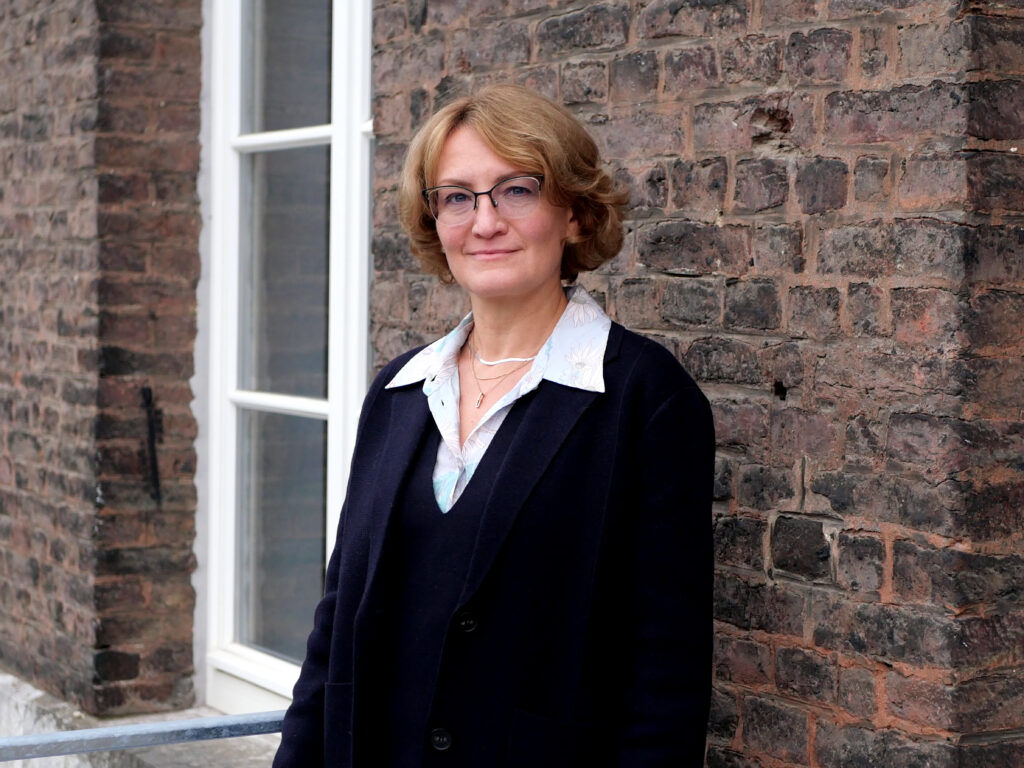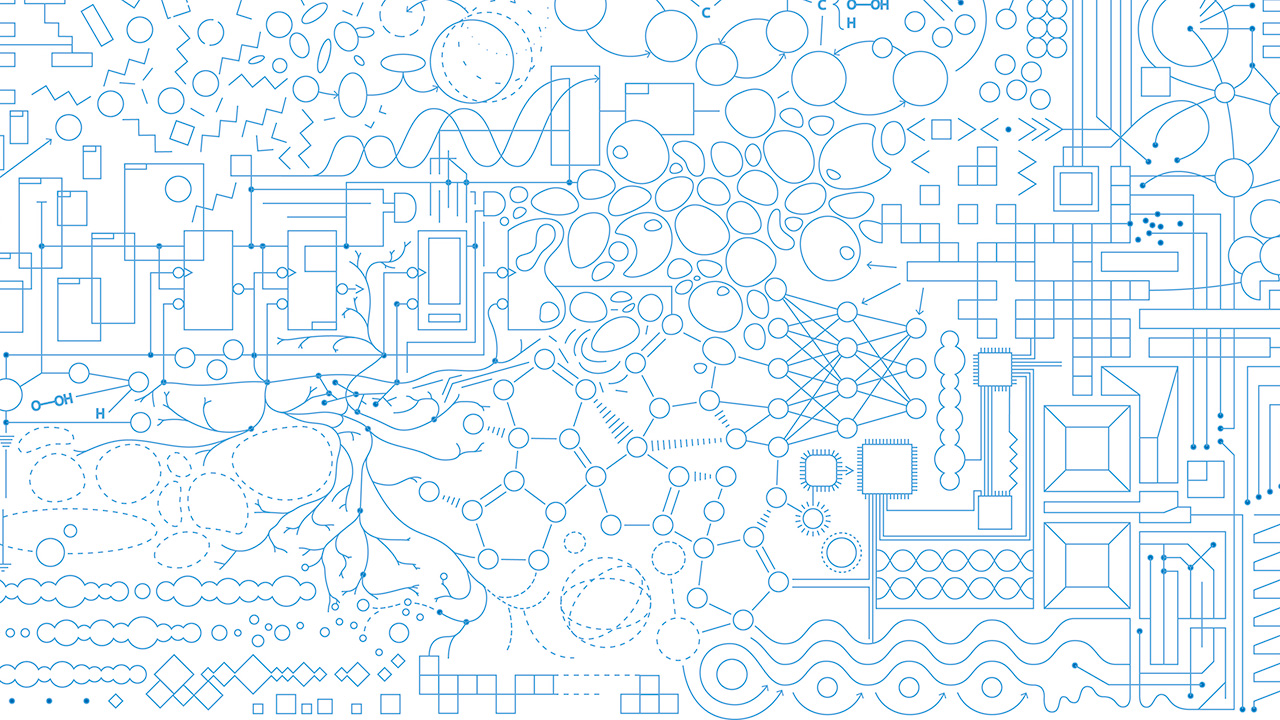c:o/re fellows Anna Laktionova and Svitlana Shcherbak have both received a fellowship from the Walter Benjamin Programme, funded by the Deutsche Forschungsgemeinschaft (DFG), which enables them to continue working independently on their research projects at c:o/re even after the end of their c:o/re fellowship.
We would like to congratulate both of them and are delighted to be able to continue working together under one roof.
Here is what Anna Laktionova wants to do during the scholarship and what it means to her:

My project “Towards the agency based philosophy of (advanced) technology” is for me a very inspiring possibility to continue elaborating the maintained approach of Philosophy of Action and Agency within such nowadays fields as Philosophy of Technology, Philosophy of Engineering, STS etc. It involves theoretical and practical philosophical methodological platforms; allows me to continue professional grows and integrating into western Philosophical and Scientific circles including inter-, cross-, trans- disciplinary levels, for example, visit and participate in events of RWTH’s Institute of Industrial Engineering, Center for Construction Robotics, The RWTH Chair Individual and Technology, other labs. I plan to concentrate on such problematic plots as: agency-based philosophy of (advanced) technologies and ongoing technological transformations towards advanced technologies; varieties of types, levels, scales of machinic actions and human-robot interactions; machine learning methods and adaptive robots; problematic machinic actions and ethical regulations for trustworthy adaptive robotics; changing of the conceptual angle of view from technology descriptions to philosophy of action and agency; aligning man-machine interactivity.
From the personal side, the fellowship gives me possibility to continue to save my (now almost 3-years old daughter) from the awful war taking place in Ukraine. I enormously appreciate understanding, support, help from colleagues, staff and people in Aachen.
Svitlana Shcherbak will work on her research project entitled “Modernization Theory: Between Science and Politics. Case of Russia”:

The Conception of the Foreign Policy of the Russian Federation, adopted in March 2023, for the first time defines Russia as a “civilization-state”. Russia is seen there as a conservative and technologically oriented sovereign state opposed to the “West”. Russia’s official ideology combines a conservative political agenda with the idea of technological modernization. It is a paradigm shift that has not come out of nowhere. This two-year research project investigates the academic (i.e., social science) and political discourse gradually introducing this shift in the post-Soviet space in relation to Western modernization theory. It examines the main shifts in the meaning of the “core concepts” of modernization theory, such as “democracy”, “development”, “freedom”, etc., in the Russian cultural and political context since 1990, compared to their original formulation in the Western social science, and how social theory has become an important ideological concept in Russian politics. To achieve this goal, the research is based on a qualitative discourse analysis. The theory of modernization was chosen because it is a grand theory that offers a broad vision of history and social development and is an important part of the social imagination. Modernization theory reflects not only the deep assumptions of the societies in which it emerges, but also those of the recipient societies. The case of Russia is particularly interesting, because the concept of modernization retains a central place in Russian political discourse, even though the basic assumptions of modernization theory contradict Russia’s self-description.



